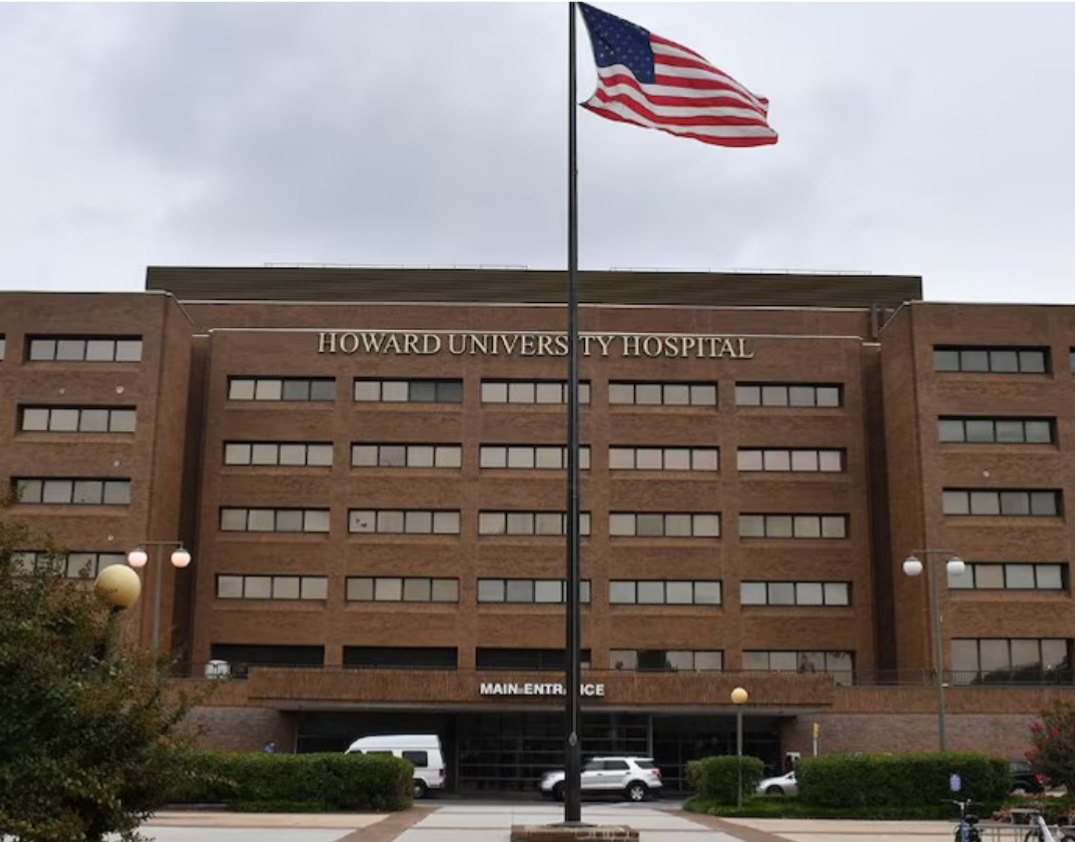JACKSON, Miss. (WLBT) – Many areas in Mississippi are known to be called maternity care deserts. It’s a definition describing a county without a hospital or birth center.
A reason, places, and organizations like Magnolia Medical Foundation in the city of Jackson offer an oasis.
Dr. Nakeitra Burse works in the field of public health and says it’s a divine path for her.
“I was a sophomore at Mississippi State. I had another aunt who was a health care provider as well. She was a doctor early on. A young doctor at that time. My mother was also in nursing school,” explained Burse, founder and executive director of Six Dimensions.
Burse says during this time, her aunt Kimberly was pregnant for the first time.
A healthy young woman in her early thirties, who shortly after her C-section, started having complications.
“My aunt and mother did talk to the doctor. ‘Hey, something doesn’t seem right. Could we try this? Could we try that?’ And he reassured our family that everything was under control,” said Burse.
A family, well-versed in medicine, pleaded for the staff to transfer her aunt to Memphis. Burse believes their urgent cries went unheard.
“She died five days after giving birth,” shared Burse.
The fifth day is when Burse says her aunt was transferred to Memphis. It was five days too late.
“We later found out that she was moving into organ failure, having multiple strokes and things like that,” explained Burse.
Before passing away, Burse’s aunt Kimberly gave birth to a healthy baby boy named Braxton.
Tragedy, though, would strike the family again. In 2016, Burse’s sister had an extremely severe case of Preeclampsia, forcing her to deliver her baby early. At just one pound and one ounce, Burse’s nephew fought for eight months in the neonatal intensive care unit (NICU) – until he couldn’t fight anymore. That same year, Burse’s sister-in-law also died three weeks after giving birth.
Research shows one of the widest racial disparities in women’s health is that Black women are three to four times more likely to die from childbirth than white women.
During the 2025 session, state lawmakers passed three bills addressing maternal health. The first was around community health workers, who can now be certified and reimbursed by Medicaid. The second was to establish paid family leave for state employees, and the third was presumptive eligibility.
“What that means is a mom who is going to see the doctor and is eligible for Medicaid doesn’t have to wait for CMS to approve her application. She can go ahead and immediately start receiving care,” explained State Representative Zakiya Summers.
Although the bills, signed into law, will go into effect July 1st, Representative Zakiya Summers says more work needs to be done.
“We still have hundreds of thousands of Mississippians [who] don’t have access to healthcare because they make too much for traditional Medicaid and not enough for private insurance. So, we have to expand Medicaid in the state of Mississippi,” said Rep. Summers.
Experts believe there are many factors playing a role in the high maternal mortality rate – systemic racism is among them.
A study conducted by the Mississippi Maternal Mortality Review Committee found that between the years of 2016 and 2020, discrimination contributed to 22 maternal deaths.
Burse believes there are parallels from our nation’s history, creating what she describes as a complex system for Black women navigating healthcare in today’s society.
“Coming in on the slave auction block, to me, that is the Black woman’s first introduction to this Western style of medicine,” said Burse. “You’re stripped of everything that you know and then put up in a very vulnerable position to be auctioned off for labor in many different types of labor. And so, that to me devalues the Black body from the start of our ancestry here in this country.”
Burse noted the history of J. Marion Sims, a man once revered as the ‘Father of Modern Gynecology,’ who would practice experimental surgeries on enslaved Black women without anesthesia.
Possibly linking dangerous misconceptions of pain tolerance when it comes to Black women.
“If I say my pain level is at a 10, but I’m not screaming – you should still take my pain level as a 10,” explained Burse.
Burse believes her aunt’s death was preventable.
“I don’t believe that he went in there saying, ‘I’m not going to treat her with x, y, and z care.’ I think there was a level of complacency. Also, a level of superiority, hierarchy that said, ‘I know what I’m doing and so, I’m going to treat this as such’,” said Burse.
Braxton will be 22 in October.
“He’s growing up, and a lot of times you can’t help but to think, ‘What would she think of him now? How would she parent him? How would she love on him?’ We try to fill in those gaps, but nothing replaces that,” explained Burse.
Answers a mother would only know – whose presence may be gone, but whose love never left.
PART TWO
Back in April, during Black Maternal Health Week, State Representative Timaka James-Jones told a personal story of how maternal mortality impacted her family.
“3 a.m., July 5th. There’s a wakening call. Beautiful mom. Four days from delivery and then a seizure,” explained Rep. James-Jones. “The call for 911 to the Humphreys County Sheriff Department and the call says, ‘The one ambulance for the entire county is already out on a call.’”
Forced to drive his pregnant wife, Harmony, Byron, a now desperate husband, rushed down Highway 49 South to the closest emergency room – roughly 30 miles away.
“Byron was given the instruction of giving Harmony CPR on the side of the road, and there, Harmony and Harper – four days away from delivery – passed away. Three miles from the nearest emergency room,” said Rep. James-Jones.
Pain from the podium, Representative James-Jones shared her niece’s story, which is tragically one many Black women in Mississippi can relate to.
In 2022, leaders at the Mississippi State Department of Health gathered data on drive times and distances from maternal residences to delivery facilities. They found major portions of rural areas in the state are not within a 60-minute drive of a birthing facility, adding to the haunting fact that Mississippi remains one of the last states in the country when it comes to maternal and infant mortality rates.
“More than 80% are preventable, which is tragic. They are all related to being pregnant. We’re talking about pregnancy-related deaths. If our mom had not been pregnant, she would not have died,” explained Dr. Dan Edney, State Health Officer. “It’s important to me that moms and babies don’t die because of their ZIP code.”
In the Delta region, due to the highly uninsured population, crucial departments along with some entire hospitals have closed their doors for good.
Never turning away someone in need of care, providers in rural areas take on patients who can’t afford healthcare, forcing hospitals, like Delta Health System, to come out of pocket.
“We actually closed our neonatal ICU a few years ago. The reason for the closure was multifaceted, but definitely cost included,” said Kiyo Holmes, chief nursing officer at Delta Health System.
Holmes says she has witnessed one of their largest medical floors close and their ICU go down from 16 beds to eight, impacting the flow of the hospital.
“When you downsize, it kind of puts a strain on our emergency departments. So, what we’ve seen is a lot of increased holding in our ER. So, patients that have been admitted to the hospital can’t go up to a floor, like to the bed, because there are no beds,” explained Holmes.
Holmes says Medicaid expansion would be an answered prayer. But, in the meantime, through grants, health leaders are using programs like the Doula Training Program and Rural Moms, which help new moms with transportation, mental health, and even equipment to check blood pressure, glucose, and their weight.
“Everybody knows we can’t provide level one maternity and NICU support in every county in the state, but we can have a system that facilitates getting patients to the level care that they need,” said Dr. Edney.
Dr. Edney says they have been doing that since the 1990s with trauma.
“If the trauma is too much, we evacuate them to a trauma center, and that makes perfect sense,” explained Dr. Edney. “That saved time, which has saved lives, and our outcomes have improved in those areas. I truly believe that if we build a similar system for high-risk maternal-infant care, we’ll see the same improvement and that gap will close.”
Trying to close the margins when it comes to maternal health disparities, the Mississippi State Department of Health is now creating an OB System of Care. Health leaders say it would provide increased prenatal care opportunities and expedited transfers to appropriate levels of care for pregnant women in the state.
“Harmony was my niece. Harper was my grandniece. Harper, who I never got to meet. Harmony, the songbird of the Mississippi Delta. The makeup artist of the Mississippi Delta. Mississippi, we need to do better. Mississippi, we’ve got to do better,” cried Rep. James-Jones.
An urgent call for action to ensure all moms are seen, heard, and have the birth they desire and deserve.
Want more WLBT news in your inbox? Click here to subscribe to our newsletter.
See a spelling or grammar error in our story? Please click here to report it and include the headline of the story in your email.
Copyright 2025 WLBT. All rights reserved.





